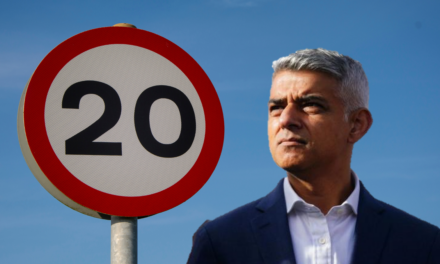Keir Starmer, leader of the Labour Party, has unveiled his plan to offer a knighthood to Steve Bray, a well-known anti-Brexit activist. Starmer, who has long been a vocal critic of Brexit, sees this gesture as a way to honour Bray’s relentless dedication to opposing the UK’s departure from the European Union.
The proposal, set to take effect “on day one of his premiership,” according to Starmer, has sparked a mixture of excitement and confusion among political observers. Critics argue that offering a knighthood to an activist with no notable achievements beyond protesting Brexit undermines the significance and tradition of such an honour.
Bray gained prominence during the tumultuous Brexit debates by positioning himself outside the Houses of Parliament, diligently protesting and fervently expressing his opposition to the UK’s withdrawal from the EU. While his efforts garnered attention and support from some quarters, others question the wisdom of awarding a knighthood for what they perceive as a singular focus on one political issue.
Supporters of the proposal argue that it symbolizes Starmer’s commitment to honouring those who have tirelessly fought against what they see as a detrimental decision for the country. They view it as a recognition of Bray’s dedication and determination to uphold what they consider to be the best interests of the UK.
As discussions unfold, opinions remain divided regarding Starmer’s pledge to offer a knighthood to Bray. The proposed honour, if implemented, would undoubtedly fuel further debates about the purpose and appropriateness of such prestigious titles in the context of political activism.
In the coming months, as the political landscape evolves and new developments emerge, the fate of this proposed knighthood will become clearer. Until then, the question of whether Steve Bray will one day become Sir Steve Bray remains an intriguing possibility.
















